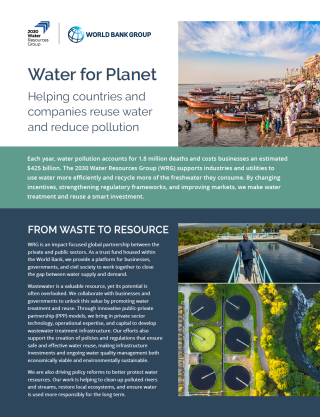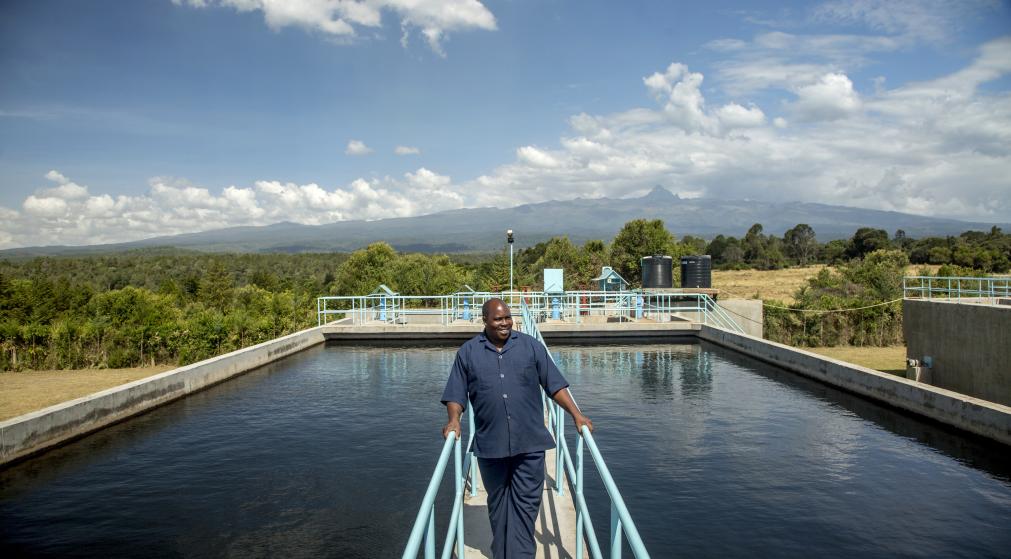
Water for Planet
We support industries and utilities to use water more efficiently and recycle more of the freshwater they consume. By changing incentives, strengthening regulatory frameworks, and improving markets, we make water treatment and reuse a smart investment.
From Waste To Resource
Leveraging public-private partnerships to reduce pollution through water reuse
Wastewater is a valuable resource, yet its potential is often overlooked. We collaborate with businesses and governments to unlock this value by promoting water treatment and reuse. Through innovative public-private partnership models, we bring in private sector technology, operational expertise, and, in some cases, capital, to develop wastewater treatment infrastructure. Our efforts also support the creation of policies and regulations that ensure safe and effective water reuse, making infrastructure investments and ongoing water quality management both economically viable and environmentally sustainable.
We are also driving policy reforms to better protect water resources. Our work is helping to clean up polluted rivers and streams, restore local ecosystems, and ensure water is used more responsibly for the long term.
Nearly
1.8 MILLION
deaths each year are caused by water pollution,
making it a major global health crisis.
An estimated
$425 BILLION
in annual costs, including lost productivity and environmental cleanup, is faced by businesses worldwide due to water pollution.
Only8%
of freshwater withdrawals for industrial and domestic use are treated for reuse globally,
despite investments in water reuse being one of the most cost-effective ways to enhance water security for industries, cities, and governments.
Current Engagements
We are scaling up wastewater treatment and reuse in both municipal and industrial sectors. For businesses, especially in water-using industrial sectors such as the garments industry, water pollution is not just an environmental challenge—it’s an issue that affects operational efficiency, regulatory compliance, reputation, and long-term viability. Proactively managing water pollution helps companies protect their value chains, reduce costs, and enhance their standing with regulators, consumers, and investors.
Explore our ongoing engagements in wastewater treatment and reuse below
Bangladesh
Strengthening water pollution management through PPPs
WRG is supporting Bangladesh’s Delta Plan 2100 by focusing on water pollution management through private sector engagement. Untreated industrial wastewater is severely polluting surface water, posing health risks to nearby communities. The challenge is exacerbated by gaps in legislation, overlapping policies, and limited institutional capacity. Water pollution costs Bangladesh an estimated $2.8 billion annually, with the textile sector as a major contributor. By 2040, the funding gap for managing water pollution is expected to reach $6.6 billion, far exceeding the capacity of public funding.
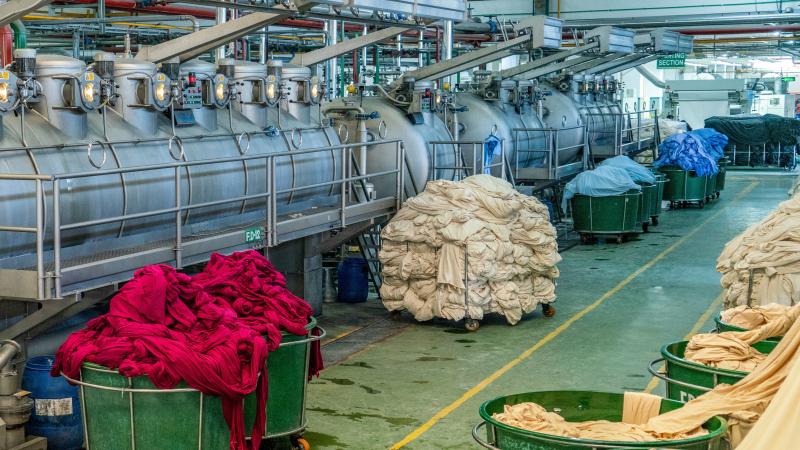
To address these challenges, we are working to:
- Mobilize $450 million in public and $100 million in private finance for wastewater management by 2025.
- Expand wastewater services for 3.5 million people.
- Treat over 25 million cubic meters of wastewater through central effluent treatment plants (CETPs) and sewage treatment plants.
We are working with the World Bank and IFC to develop Bangladesh’s first replicable public-private partnership (PPP) model for municipal wastewater management, starting with Gazipur City Corporation, the largest in the country with 2.5 million people and no wastewater facility. The Ministry of Local Government has also requested WRG to initiate a similar PPP project in Cumilla City Corporation, which serves 1 million people.
Additionally, we are collaborating with the Bangabandhu Sheikh Mujib Shilpa Nagar Economic Zone to develop a hybrid annuity PPP model for the first centralized effluent treatment plant in an industrial zone. The Bangladesh Economic Zones Authority has requested WRG’s support for PPPs in effluent treatment and solid waste management in Jamalpur and Srihatta economic zones.
This initiative builds on our decade-long engagement in Bangladesh, which began with the Bangladesh Water Multi-Stakeholder Partnership in 2015, governed by a National Steering Board chaired by the Cabinet Secretary. Consultations through the partnership have led to several key achievements, including:
- Approval of regulations for the Bangladesh Water Act.
- Development of green economic zone guidelines.
- National incentives for water-resilient practices in the textile sector.
- Real-time river water quality monitoring.
- Exploration of tradable wastewater reuse certificates.
Water For The Future: The Next Generation Of WRG Innovation
Our public-private collaboration models have unlocked new possibilities. We're leveraging these successes to pursue bold solutions that were previously out of reach.
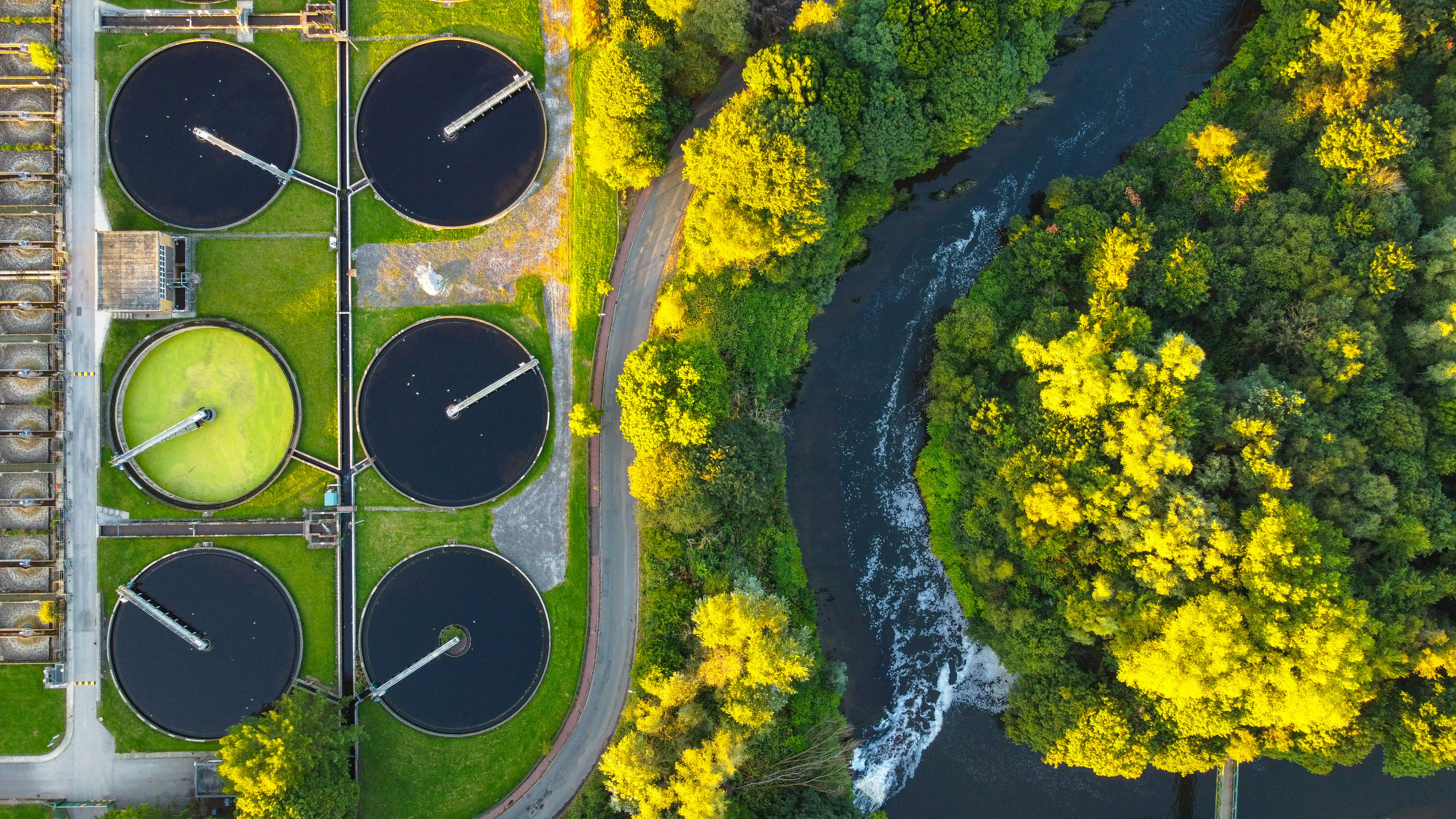
Scaling Water Reuse
We are developing roadmaps for the reuse of municipal and industrial wastewater to reduce pollution.
Water scarcity and pollution are not just environmental challenges—they present significant risks to both industries and communities, particularly in water-intensive sectors like manufacturing, textiles, and energy. These risks are already leading to economic losses, from supply chain disruptions to increased water and food insecurity.
Water reuse offers a practical, cost-effective solution to mitigate these risks. By investing in water reuse, industries can improve operational resilience, reduce regulatory pressures, and support sustainable growth. In addition, cities can diversify the sources of water supply and address the discharge of untreated and partially treated wastewater into local water bodies. Yet only 8% of global freshwater withdrawals for industrial and domestic use are treated for reuse, highlighting an untapped opportunity to improve water security and resilience.
Our initiative on Scaling Water Reuse elevates the importance of water reuse across sectors and promotes proactive steps to secure water resources, reduce environmental impact, and enhance long-term sustainability and resilience.
We are developing global position papers that outline the case for scaling water reuse, particularly in municipal and industrial contexts, providing clear roadmaps for implementation. A joint effort with the International Finance Corporation (IFC) and Global Water Intelligence (GWI), the position papers will cover areas like policy, institutional, and regulatory frameworks, economic incentives, and scalable financial solutions, offering guidance for adopting reuse practices across sectors.
Supporting this initiative, we are advancing efforts to build more efficient markets, partnership models, and incentives for water reuse. This includes creating markets for tradable water permits, facilitating competitive private sector participation, and strengthening frameworks for a greater role of reuse in water security strategies within municipal and industrial contexts. This effort is also exploring the possibility of establishing reuse targets at different scales to provide clear commitments by the public and private sector towards creating a circular economy. By aligning sustainable water practices with market-based solutions, we aim to make water reuse a core strategy for tackling water scarcity and pollution.
Past Innovations, Lasting Impact
A Legacy of Firsts in Water Reuse and Pollution Reduction
Throughout the past ten years, we have developed first-of-their-kind incentive and financing models to make water reuse more feasible. We’ve collaborated with legislators to establish regulations that encourage wastewater treatment and created frameworks to reward businesses that take action. Through new public-private partnerships, we’ve made it possible to finance wastewater treatment plants that were previously deprioritized due to lack of available resources. These strategies have proven successful and are now being used as models for others, making it easier for cities and industries to adopt similar approaches.
Explore these models below:
India
The first PPPs for wastewater treatment and reuse in the Ganga Basin
WRG devised a Public-Private Partnership (PPP) that has made large-scale wastewater treatment projects more feasible, reducing pollution discharge into the Ganga River basin. Introduced in three cities over the period 2015-2017, in partnership with the Indian government and the World Bank Group, the model has since been scaled to include 30+ towns in the basin, launching contracts worth over $1.5 billion, with more than $650 million mobilized from the private sector.
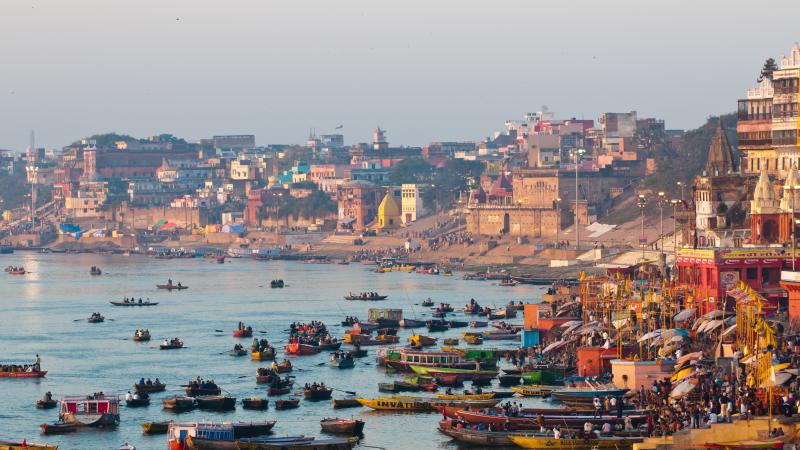
The Ganga River basin, which supports over 600 million people and contributes to more than 40% of India’s GDP, faces significant environmental challenges. The river passes through 50 major cities, generating around 3 billion liters of sewage daily. However, only a fraction of this wastewater is treated, leading to pollution that endangers both human health and the environment.
To address this issue, we collaborated with the Indian government to co-develop a PPP on a hybrid annuity model to finance wastewater treatment plants. Under this model, the private sector concessionaire mobilizes 100% of investments upfront, 40% of which the government reimburses during the construction phase based on milestones reached, while the remaining 60% is paid over 15 years based on the project’s performance, along with payments for operations and maintenance of the infrastructure, linked to specific performance targets. This approach ensures that private companies maintain high standards of performance throughout the project’s lifespan. As these efforts continue to scale, they provide a practical model for other regions facing similar challenges.
Peru
The first certificates for sustainable corporate water footprints
WRG introduced the Blue Certificate in Peru as a strategic initiative to encourage responsible water management among businesses. Endorsed by Peru’s National Water Authority (ANA), the Blue Certificate is awarded to companies that meet stringent requirements: measuring their corporate water footprint, implementing a comprehensive water reduction plan, and developing community projects that deliver shared value.
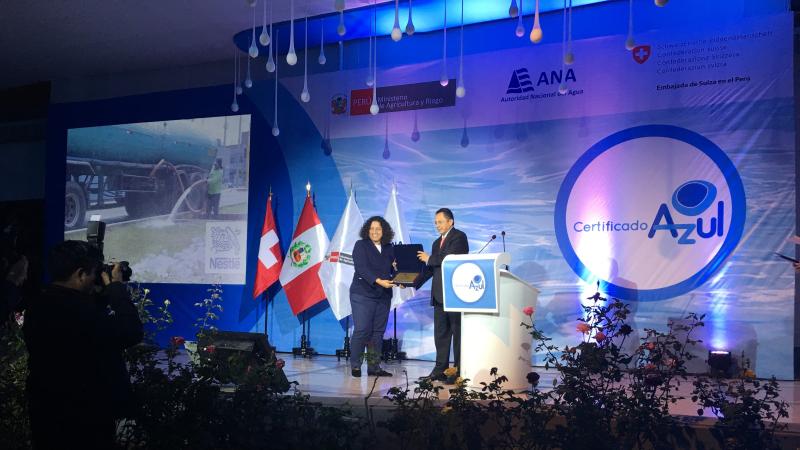
Understanding the need for a robust framework to promote corporate accountability in water stewardship, we collaborated with the national water authority to create a certification process that not only encourages companies to monitor their water usage but motivates them to take concrete actions to minimize their environmental impact. The Blue Certificate provides both recognition and a structured approach for companies to enhance their sustainability practices.
Since its launch in 2016, the Blue Certificate has been embraced by 32 companies across various regions of Peru. These companies have collectively invested approximately $2.5 million in initiatives designed to reduce their water footprint and support local communities. As a result, the program has conserved around 3 million cubic meters of water and positively impacted nearly 50,000 people.
The Peruvian government, with ongoing support from WRG, is expanding the Blue Certificate program to additional regions. This expansion aims to deepen the adoption of sustainable water practices nationwide, positioning the Blue Certificate as a replicable model for promoting corporate responsibility in water management.
Mongolia
New water pollution fee law incorporating the polluter pays principle
WRG collaborated with Mongolia’s Ministry of Environment and Tourism to revise the Law on Water Pollution Fees, addressing challenges in managing the Tuul River’s water quality—a key source for Ulaanbaatar’s residents and industries. The original 2012 law faced implementation difficulties due to its complex and unclear guidelines.
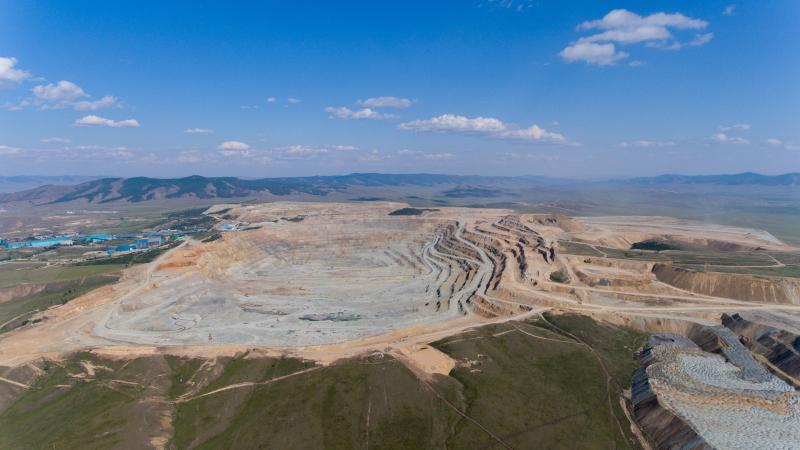
In 2018-2019, we brought together stakeholders from both the public and private sectors, including major water users like power plants, beverage companies, and mining firms, to refine the law. These revisions focused on making the law more practical, encouraging businesses to treat wastewater on-site, promote water reuse, and reduce the discharge into public networks along with the associated pollution fees.
Following these changes, companies began implementing the revised guidelines, enhancing their water management practices and contributing to improved water quality in the Tuul River. A total of 22 companies across eight sectors are now implementing pre-treatment measures, leading to an overall reduction of 60 million cubic meters of wastewater discharge into the Tuul River.
Building on these reforms, WRG Mongolia has further developed national standards for treated wastewater reuse, established guidelines for estimating pollution fees, and worked to enhance the capacity of local laboratories to monitor wastewater quality. These efforts collectively ensure that the revised law not only sets new standards for water management in Mongolia but also establishes a foundation for sustainable industrial practices that protect the country’s water resources for future generations.
Mongolia
WRG Introduces Voluntary Code for Sustainable Mine Water Management
In Mongolia’s arid South Gobi region, where water scarcity is a growing concern, WRG facilitated an initiative to address the challenge of water management in the mining sector. The region, known for its vast mineral wealth, faces water shortages that threaten both the environment and the sustainability of mining operations. Mining activities have increased water demand, leading to concerns about the depletion of groundwater reserves and the long-term viability of water resources.
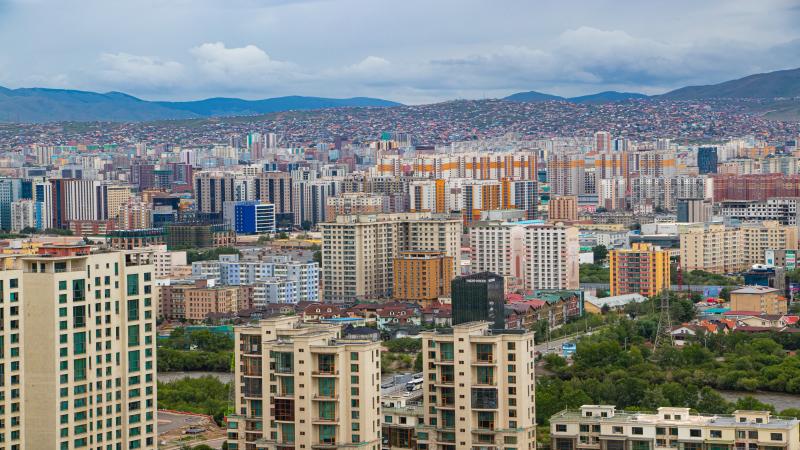
We collaborated with the International Finance Corporation (IFC) to bring together mining companies, local communities, and experts through a roundtable discussion in 2013. This collaboration resulted in the creation of Mongolia’s first voluntary code of practice for sustainable mine water management. The code was developed based on international best practices and provides a comprehensive framework for mining companies to manage water resources more responsibly.
By adopting the code, 11 mining companies have committed to improving their water stewardship, recognizing that sustainable water management is crucial not only for their operations but also for maintaining good relations with local communities who rely on these shared water resources. Effective management involves the careful monitoring, use, and recycling of water in mining operations to minimize environmental impact and ensure that water remains available for other critical uses. The voluntary code serves as a model for how industry-led initiatives can lead to meaningful environmental and social improvements.
Global
Wastewater Reuse Certificates:
A Market-Based Approach for Sustainable Water Use
WRG conceptualized an innovative policy instrument for the water sector: Wastewater Reuse Certificates. These tradeable permits aim to foster a circular economy by encouraging the efficient use and reuse of water, shifting away from the traditional linear model of “take-use-discharge.” WRG’s Wastewater Reuse Certificates as Tradeable Permits – A Handbook for Roll-Out serves as a comprehensive guide for stakeholders, including water experts, regulators, and industry associations, offering a framework to implement wastewater reuse certificate trading system across regions.
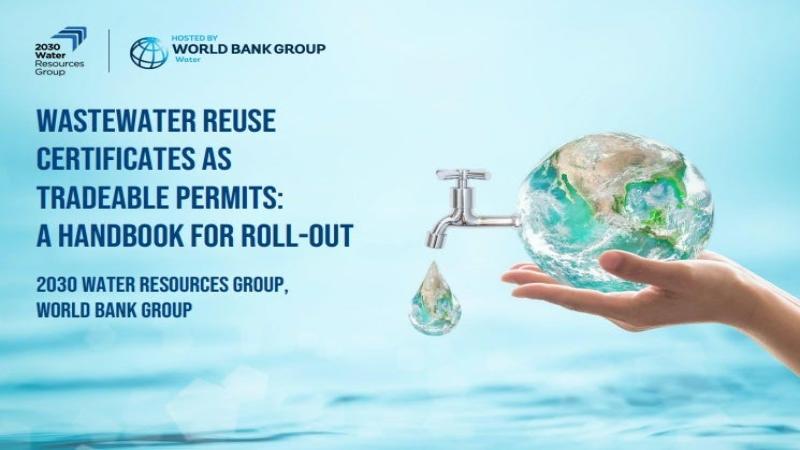
The system is designed to set water reuse targets for large water consumers, such as industries, urban local bodies, and agricultural sectors. When users exceed their targets, they earn credits in the form of water reuse certificates, which can be sold to others who fail to meet their targets. This market-based approach incentivizes greater investment in wastewater reuse, promoting sustainable practices while ensuring compliance.
The Handbook outlines the key elements for rolling out the certificates, from selecting participants and setting targets to enabling a marketplace and promoting the trade of certificates. It also explores how digital technology will play a role in data validation, ensuring transparency and efficiency.
By leveraging cap-and-trade principles, similar to those applied for emissions trading, the scheme offers a financially viable pathway for industries and utilities to improve water management. This approach not only drives more sustainable water use but also positions businesses to benefit from increased brand recognition, shareholder value, and access to credit for investing in wastewater reuse. The framework has been adopted by the NITI Aayog, the national-level policy think tank in India, in its guidelines on water reuse.
